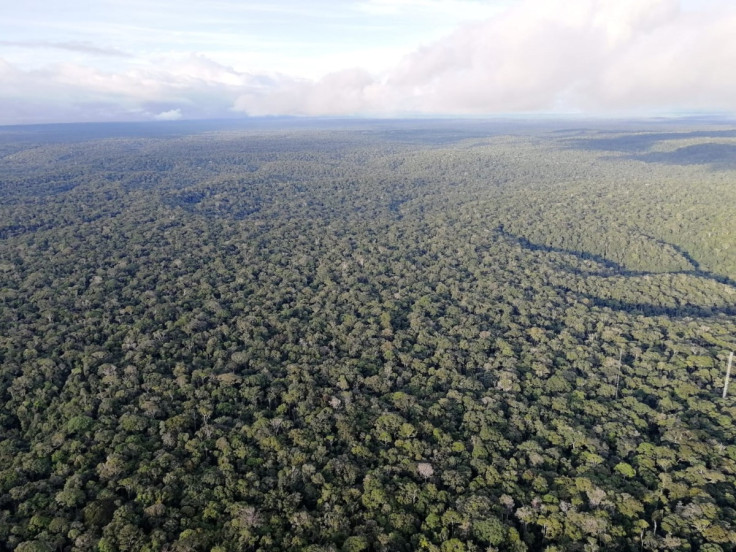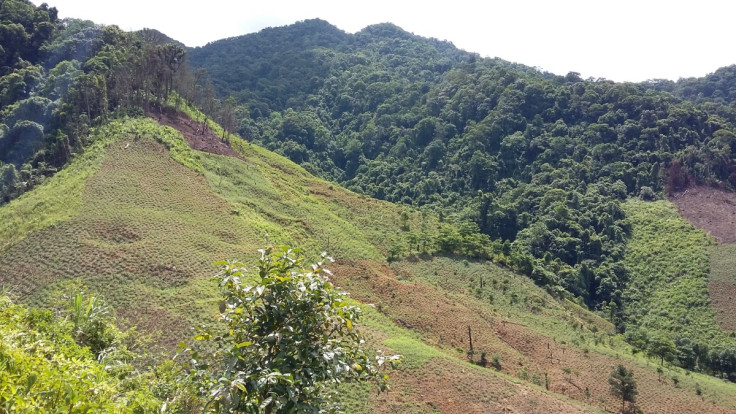Deforestation in the tropics linked to reduction in rainfall, according to climate change study
"There need to be renewed efforts to stop forests being lost and to regenerate lost and degraded areas," says Professor Dominick Spracklen.

The debate around the link between forest cover and climate change, specifically rainfall, has a longer history than most might imagine.
In ancient Greece, one Theophrastus (371–287 BCE) argued that the Aegean world had experienced climate change due to the draining of marshes and the extension of agriculture.
It may come as a surprise then that no conclusive link has ever been established between forest cover and rainfall - until now. A study by a research team at the University of Leeds has provided "compelling evidence" that deforestation is resulting in reduced rainfall across large parts of the tropics.
The research has been published in Nature on 1st March 2023.
The idea that forests produced rain peaked during Victorian times, though critics still abounded. There is still debate between supply-side theorists, arguing that forests are net producers of rainfall, and the demand-side school of thought, which believes the opposite.
The debate has significant policy ramifications. For instance, demand-side policies in South Africa limit afforestation in catchments with constrained water supply to provide to other downstream users, according to studies by Bennet and Kruger in 2013 and 2015.
The University of Leeds study, headed by doctoral researcher Callum Smith, has been conducted in the Congo using satellite data obtained over a 14-year period from 2003 to 2017.
It estimates that by the end of the century if the rate of deforestation in the Congo was to continue, it would result in severe climate impacts. Rainfall in the region could be reduced by between 8% and 12%, with a major impact on biodiversity and farming.
Smith explained that forests critically influence the hydrological cycle and help to maintain local and regional rainfall patterns - deforestation thus impacts people who live nearby, increasing water scarcity and depressing crop yields.
The drier climate will also reduce forest cover itself, according to Smith.
The researchers looked at the impact of forest loss in three areas of the tropics - the Amazon, Congo and Southeast Asia - which have all experienced rapid land use changes.
The study analysed satellite observations from 2003 to 2017, to identify locations where forests had been cleared. Rainfall data, measured by satellites, compared precipitation in deforested areas to neighbouring areas with thicker forest cover.

Deforestation is clearly linked to the dip in rainfall
The study revealed that tropical forest loss caused reductions in rainfall throughout the year, including in the dry season when any further drying has the most serious ramifications for plant and animal ecosystems.
The team warns that the resulting climate change will lead to increased drought, which in turn is exacerbated by continued deforestation.
Understanding the link between forest cover and rainfall
It is believed the loss of tree cover disrupts the process where moisture from leaves - through a mechanism called evapotranspiration - is returned to the atmosphere where it eventually forms rain clouds.
As well as impacting natural ecosystems, a reduction in rainfall would be detrimental to agriculture and hydropower plants, impacting local communities.
The research team say, on average, crop yields declined by 0.5% for every 1% reduction in rainfall.
Tropical forests sustain precipitation
Professor Dominick Spracklen, from the School of Earth and Environment at Leeds who supervised the project, said: "Local people living near deforested regions often report a hotter and drier climate after the forests are cleared. But until now this effect had not been seen in rainfall observations.
"The study shows the critical importance of tropical forests in sustaining rainfall. Although there have been efforts to halt deforestation, the loss of forest cover in the tropics has continued. There need to be renewed efforts to stop forests being lost and to regenerate lost and degraded areas."
Furthermore, the research warns that a decline in rainfall takes a toll on biodiversity, increases the risk of forest fires and hampers carbon sequestration, the process by which nature removes carbon from the atmosphere and stores it.
© Copyright IBTimes 2025. All rights reserved.






















